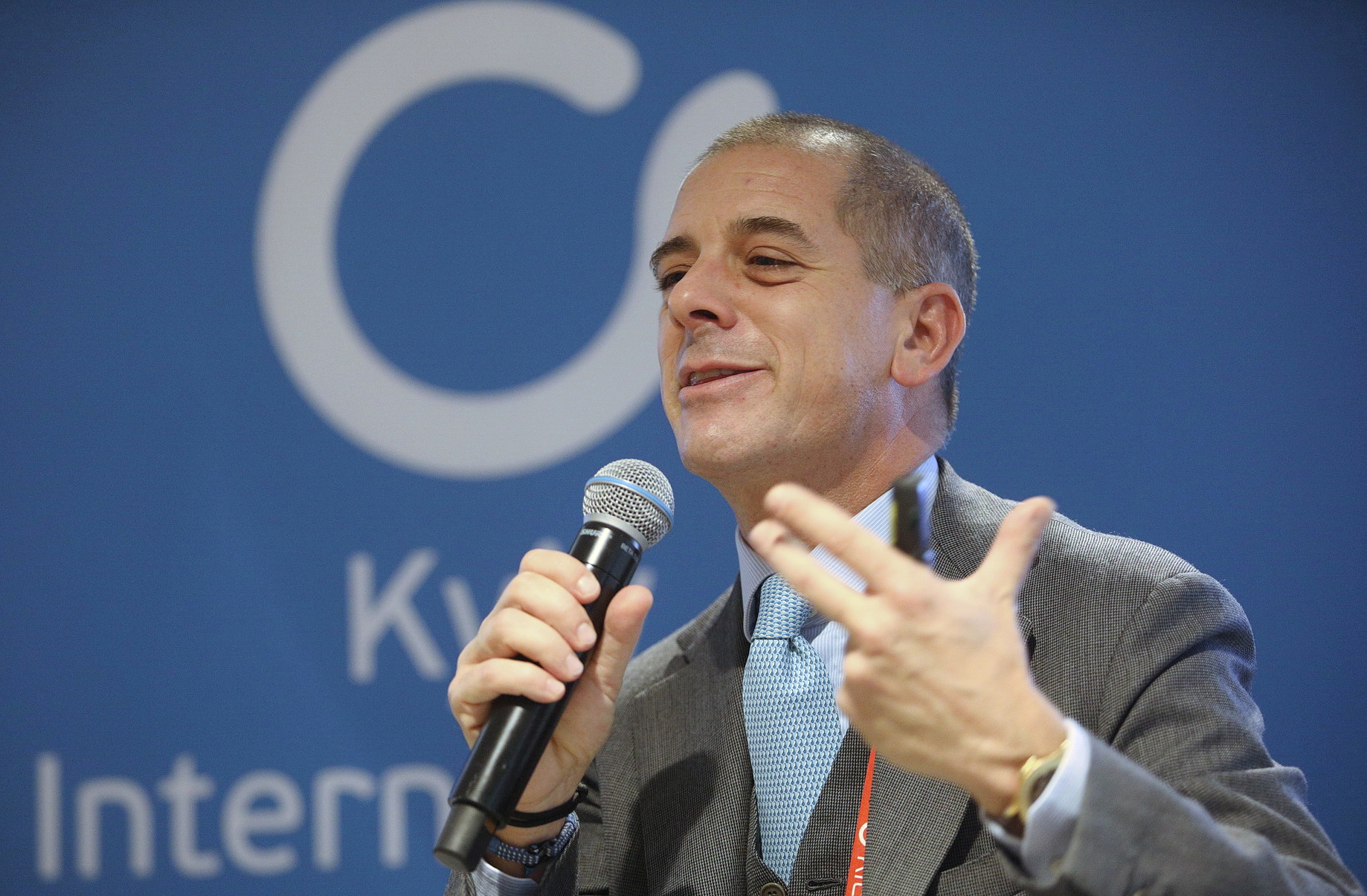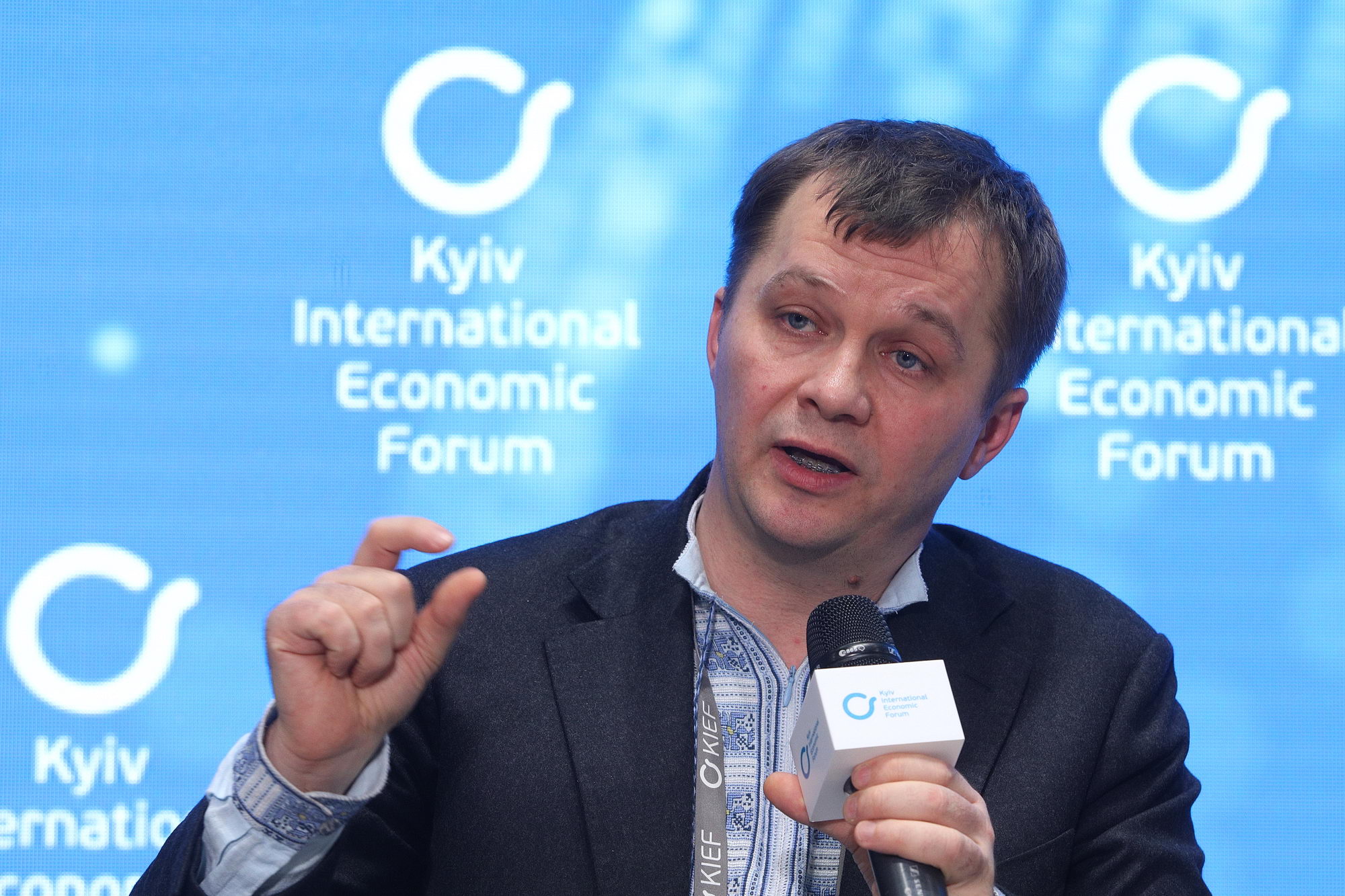A country’s positive reputation doesn’t appear out of thin air. It has to be created.
Building such a reputation was a hot topic at the Kyiv International Economic Forum, a major business event that took place in the capital on Nov. 8-9.
According to a study by the Reputation Institute, a data-driven reputation analytics firm, Ukraine’s global reputation remained weak in 2019. It took 64th place among 73 countries analyzed, falling from 61st place just two years earlier.
According to Michele Tesoro-Tess, executive vice president, Italy, and Switzerland at the institute, the main reason is low effectiveness in Ukraine’s government.
“That is the area that is hitting you the most,” Tesoro-Tess said at the forum.
In 2019, only one out of four people said they would visit Ukraine. Meanwhile, 50-70% of respondents surveyed by the Reputation Institute wanted to visit countries like Sweden, Switzerland, Norway, Finland, New Zealand and Canada.
“These numbers are very tightly linked to the reputation of the country. If you will grow your reputation, these numbers are going to grow too,” said Tesoro-Tess.

Michele Tesoro-Tess, executive vice president, Italy and Switzerland at the institute, speaks about the main factors that affect Ukraine’s low reputation in the world during the Kyiv International Economic Forum on Nov.8, 2019. (Kostyantyn Chernichkin)
Make economy great again
The key to building a strong economy and reputation in Ukraine is creating a favorable climate for investment, according to Economy Minister Tymofiy Mylovanov. He said this is the government’s top priority.
Mylovanov admitted that Ukraine has “a lot of catching up to do.” But he believes it is possible, citing the country’s success reducing inflation for comparison.
“In 2014-2015, when inflation was 30 to 40%, Ukraine set a target to have 5%. Everyone was laughing back then,” he said.
Today inflation is below 8%.
Mylovanov said agriculture is a priority for spurring economic growth — a sector that is also symbolic for a country once known as the breadbasket of Europe. He believes that lifting the longstanding moratorium on farmland sales and opening the land market will be among the government’s first steps.
“It is already there (the market), but it’s about making it transparent. Otherwise, we cannot grow,” the minister said.
“If we succeed at this, we will demonstrate that there are changes (in the country) and Ukraine is worth paying attention to. This way the government will demonstrate its credibility,” he added.
Other priorities will include large-scale privatization, trade and export promotion and labor market reform.
“In the next several weeks, you will see a new labor code proposed by the government,” Mylovanov said.

Economy Minister Tymofiy Mylovanov speaks about Ukraine’s top government priorities to boost the country’s economy during the Kyiv International Economic Forum on Nov.8, 2019. (Kostyantyn Chernichkin)
However, Kostyantyn Yefymenko, president of the Ukrainian pharmaceutical giant Biopharma, is skeptical about the government’s promises.
“Ukraine lacks actions and ideas. What prevents stopping raider attacks? Is it hard to put handcuffs on these people, arrest them, show it on major TV channels and say that it will happen with everyone who does such things?” he said.
“We need clear actions. No one will invest money into the country if assets can be stolen. It’s the first and major step.”
Yefymenko cited the challenges faced by HEAD Sportswear, an Austrian sports equipment brand. In March, the company paid 5 million euros for a land plot in Vinnytsia Oblast, some 260 kilometers southwest of Kyiv to build a factory. Now, the company has to pay an additional 1.3 million euros to connect the site to the electricity grid.
“HEAD will leave Ukraine, will tell everyone about it and we won’t see foreign investors for another five years,” said Yefymenko.
Yefymenko says he is also worried about Ukrainian youth.
“Go to a school and ask students what is their dream: 95% are dreaming to study in Europe,” he said.
In agriculture, the country should focus more on producing processed products, not just exporting grains. Industrial production should be revitalized with government help, Yefymenko said.
He also stressed the importance of plants that produce ammonia fertilizer.
“Ukraine used to control 4% of the market share globally for ammonia fertilizers. Now, (many) plants remain idle. What is the state’s position on this? Just political intrigues,” he said.
Banking sector
Another sensitive issue raised at the conference was low-interest loans for small and medium businesses.
Currently, interest rates are prohibitively high. If they could be lowered, such loans could prove to be a driver for business in Ukraine.
“No one will invest at a 20% annual rate. I don’t see it on the agenda (of the government),” said Yefymenko, whose company Biopharma has a $100-million revenue in 2018 and is expecting to increase this figure by a factor of three by opening a new plant in the next three years.
Mylovanov agreed with Yefymenko’s points, but only in theory. In practice, he said, there is almost no chance that Ukraine will significantly lower interest rates unless law enforcement protects companies from raider attacks.
At the same time, while international financial organizations like the European Investment Bank provide low-interest loans at 1-3%, in the last two years, no Ukrainian companies have been able to get such loans since they could not show transparent business models, Mylovanov said.
Jason Pellman, a regional manager at the World Bank’s International Finance Corporation, said it’s important to have strong domestic investment banks.
“We are trying to create a framework that will allow Ukraine to get more investments,” Pellmar said.
He stressed that the International Finance Corporation wants to help Ukraine reduce the number of state-owned banks, which currently represent around 55% of the banking sector, according to the National Bank of Ukraine (NBU).
Since 2014, NBU has liquidated half of Ukraine’s private banks after many were deemed insolvent, and the government is working on reducing the state’s share in this sector.
“We are already at an advanced stage of negotiation on the pre-privatization of Ukrgasbank,” Pellmar said. “I think it will help to set a better reputation (for Ukraine),” said Pellmar.
